As you search for a job, it’s important to keep in mind that you aren’t just looking for a salary from a company. You have value as an employee, and you can contribute meaningfully to a company and its culture.
Know your own strengths and weaknesses, as well as what you hope to gain from the job, and keep those things in mind as you read job listings and research potential places to work. Also, be alert for these red flags. They don’t necessarily mean that you need to avoid a company, but they can provide you with a reason to look a little closer and see if the job really would be a good fit for you.
Because, you know, nobody wants to be miserable and scrambling for another position only a few months after taking one.
1. Vague Job Description
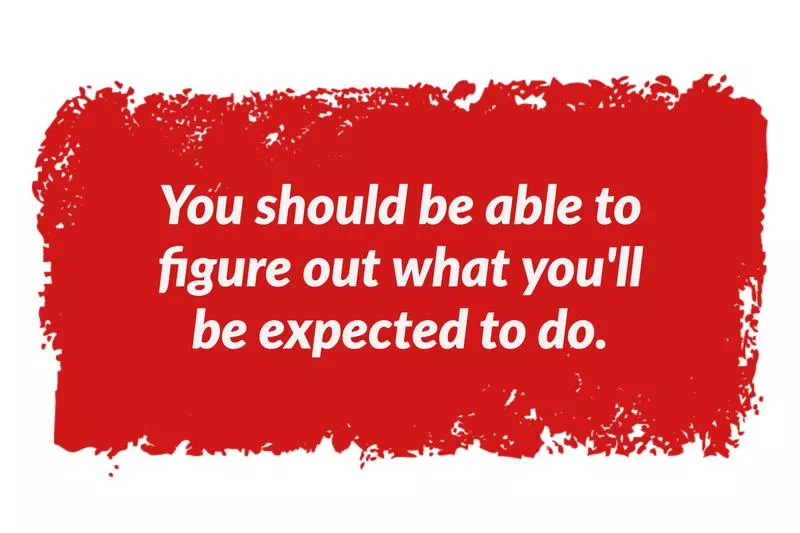
Check for a job posting that offers insight into what skills and background are necessary for the job. When reading the description, you should be able to figure out what you’ll be expected to do and whether you qualify.
In many cases, a vague job description is an indicator that the employer might be looking for an all-purpose employee they can assign multiple responsibilities — all while underpaying that person.
2. Culture of Work, Work, Work
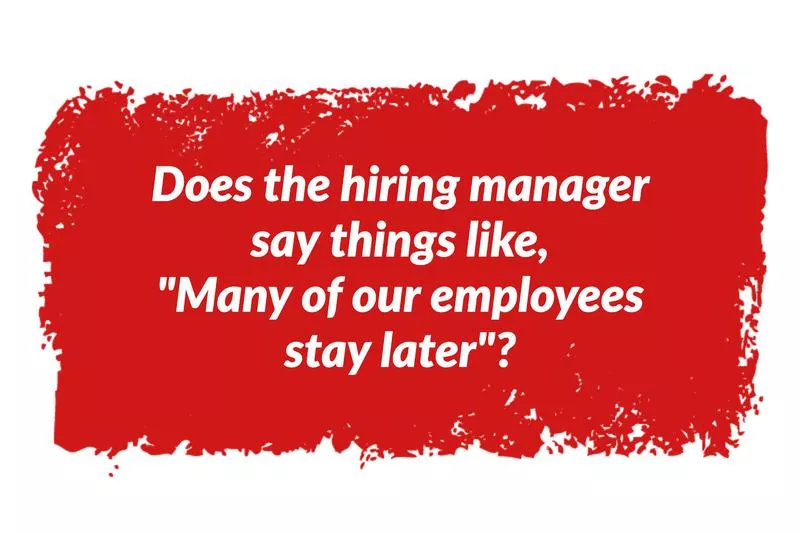
Will you be expected to be on call on evenings and weekends? Does the hiring manager say things like, “Many of our employees stay later” or “Don’t be surprised if you take some of your projects home with you”?
There’s nothing wrong with working hard and putting in a little overtime. But if it looks like the normal state of operations is for most employees to be coming in early and/or staying late, you might find it hard to strike the work/life balance you want.
3. Unprofessional Communication
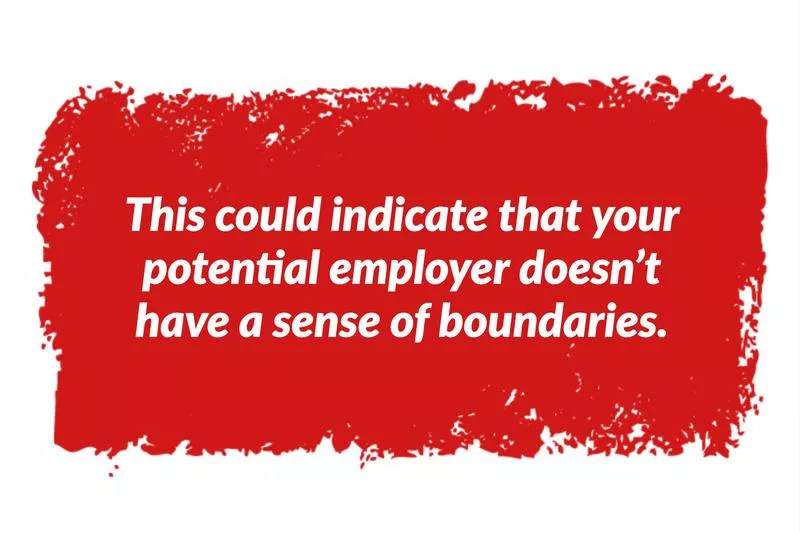
Pay attention to how the hiring manager and other people in the company communicate with you. Do they send you texts with important information, rather than sending an email? Perhaps they call late at night or contact you at other unusual times.
Even excessive communication can be a problem. Yes, you want to be updated, but is the communication overdone and is the hiring manager always sending you follow-up emails because they forgot something?
This could indicate that your potential employer doesn’t have a sense of boundaries and could begin making unreasonable demands once you’re on board. Additionally, it could be an indicator that you won’t have any real time off, if you’re expected to answer phone calls and texts at any hour.
4. Lack of Communication
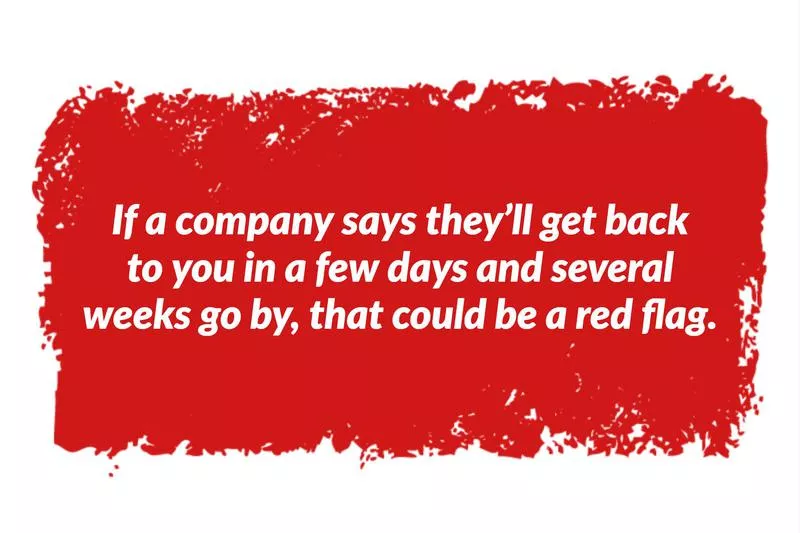
Sometimes a lack of communication can be a red flag to avoid a job. If a company says they’ll get back to you in a few days and several weeks go by, that could be an indication that they aren’t going to provide you with adequate resources and support.
Not every job is going to be able to respond to each email or each resume. However, if you’ve been brought in for an interview, you should at least be brought somewhat up-to-date on the process. If the company makes an offer, and then doesn’t get back to you about actual onboarding and next steps within a reasonable time period, that’s also a major red flag.
5. Earning Potential Is Stressed Over Current Salary
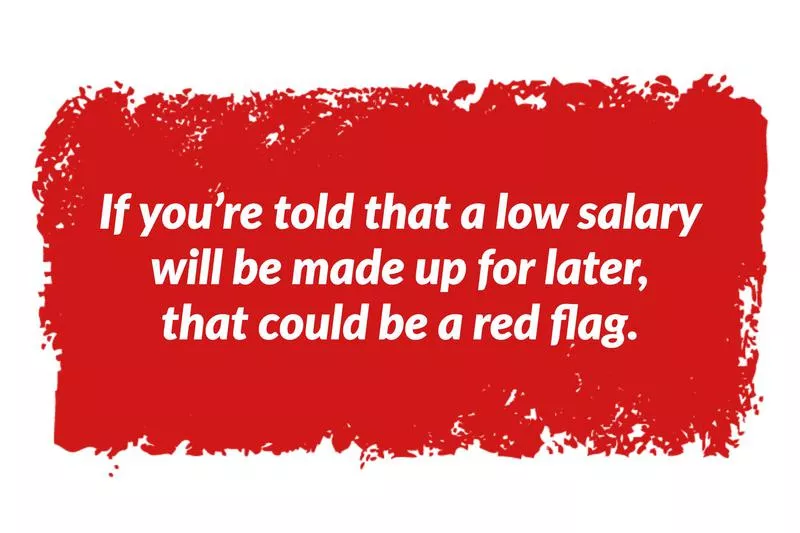
Watch out for companies that put a large emphasis on your earning potential, brushing off questions about current salary.
Any time you’re told that a low salary will be made up for later, in the form of huge bonuses, or the potential to make more money as the company grows, that could be a red flag.
If the job relies heavily on commission, ask about stats regarding the commission tiers, and how many employees achieve them. Be on the lookout for hiring managers that exaggerate your ability to earn top commissions.
6. You’re Offered a Different Job Than You Applied For
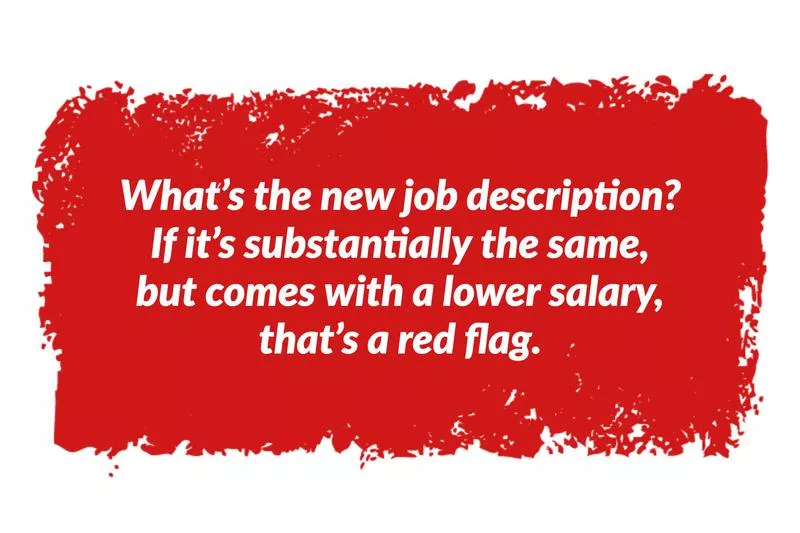
You might have applied for one position, but when the offer comes, the company pulls the old switcheroo, insisting that you’re a better fit for a different position.
Maybe you are a better fit for the other job. But before you assume that’s the case, get more information on the alternative position. What’s the job description? If it’s substantially the same, but comes with a lower salary, that’s a red flag that the company is trying to pay you less.
Likewise, if the hiring manager can’t give you a straight answer about what the new position entails, you might need to refer to the first red flag — a vague job description.
7. You Can’t Get a Straight Answer on the Promotion Track
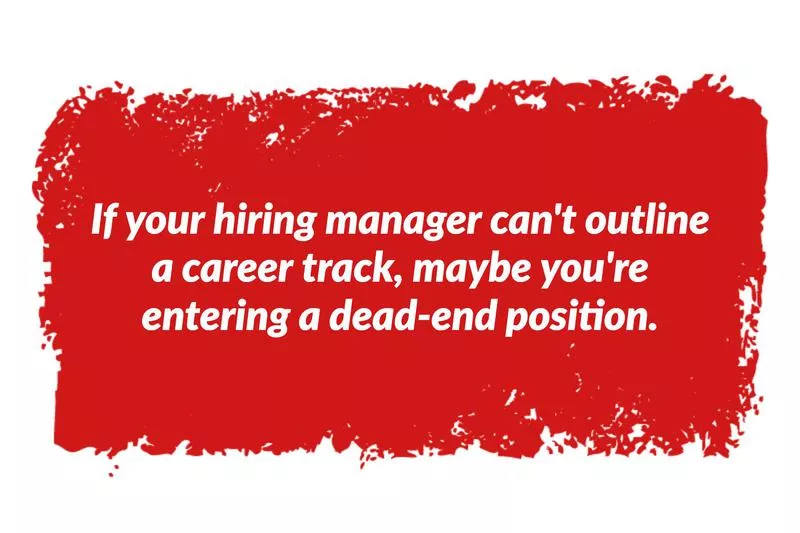
A job isn’t just about what you can do for the company. It’s also about whether the company can help you in some way. Ask about the promotion track, and your opportunities to move up the company ladder.
If your hiring manager can’t help you trace a career track, that could be a sign you’re entering a dead-end position.
8. An Ill-Defined Company Mission
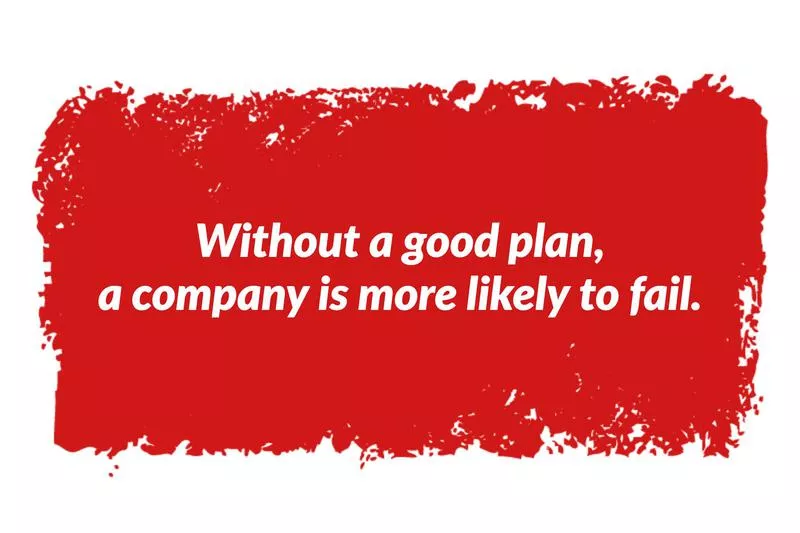
Many of us like to feel as though we’re doing meaningful work. Look on the company website for its mission or ask the hiring manager what they feel is the purpose of the company. A well-defined mission can indicate that the company knows where it’s going and has defined goals.
An ill-defined mission can indicate that a company doesn’t have an overarching purpose — and therefore doesn’t have a plan for reaching its goals. Without a good plan, a company is more likely to fail, resulting in job loss for employees.
9. You’ve Just Seen Unsettling News Reports
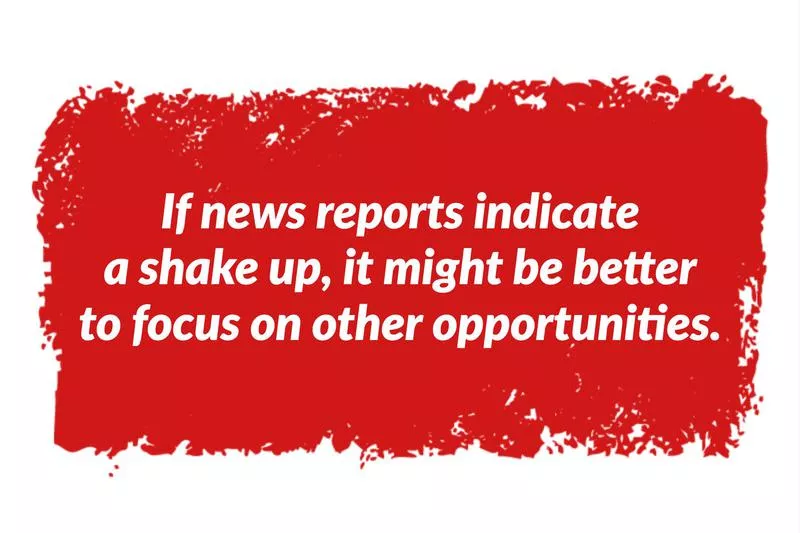
Maybe you’ve just seen a news report about a scandal, an upcoming merger or a radical change in direction. When there’s news that indicates a company is in turmoil, that could be a sign that they aren’t going to be around for very long. Or, at the very least, it could mean that things are going to be disorganized for a while.
There are companies that enter into talks about mergers and acquisitions, even while they continue hiring new recruits. However, a takeover shortly after you start work could lead to you losing this new job. If news reports indicate a shake up or some other concerning point, it might be better to focus on other opportunities.
10. A Poorly Designed Company Website
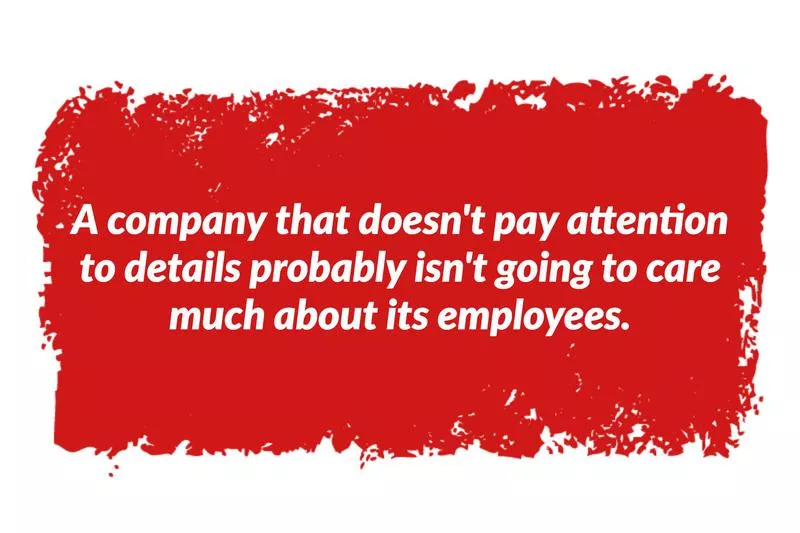
What do you think when you visit a company website that’s unprofessional, hard to navigate and riddled with mistakes? Can you take that company seriously? Can you really expect that company to be around in the long run?
Additionally, if the company is that careless with its website — which is its public face — what type of treatment can you expect as an employee? A company that doesn’t take time to pay attention to important details probably isn’t going to care much about its employees.
11. Your Interviewer Is Messy
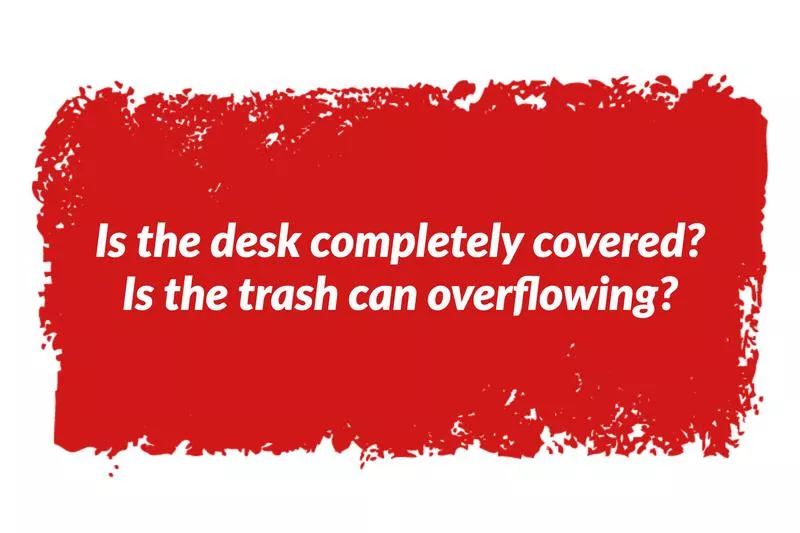
You’ve made an effort to appear put together. You’ve probably put on an appropriate outfit and done your hair. It’s one thing if you work for a scrappy startup or if you work in a creative or casual environment, where people are expected to be dressed down and a little disorganized. However, if you show up and the hiring manager looks completely disheveled, that could be a sign that they don’t have it together. And maybe the company doesn’t, either.
Look at the desk as well. If there are a few loose papers or a folder or two on the desk, that’s not an issue. But is the desk completely covered in papers? Is the trash can overflowing? These are signs that management isn’t taking themselves or the company seriously.
12. Combination of Low Salary and Few Benefits
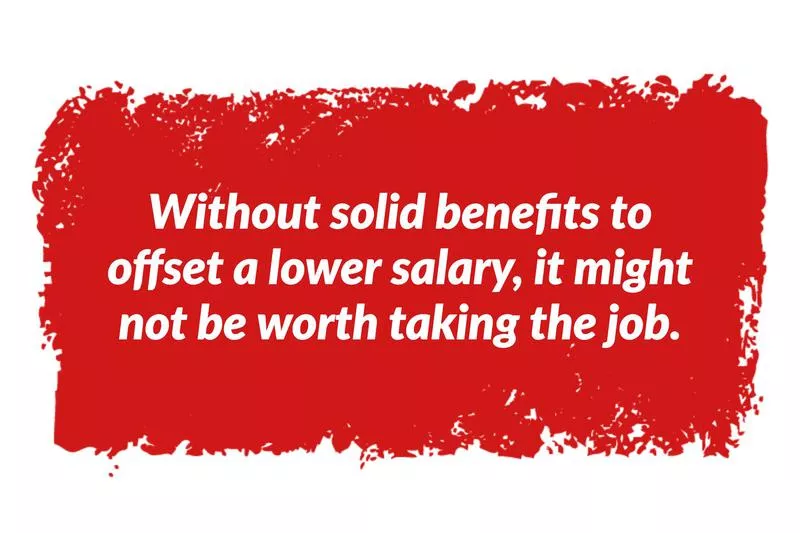
There are times that a great benefits package can make up for a salary that’s a little lower than you want to accept. For example, if you can get a great health plan, a retirement plan with a match and there’s a good vacation policy, that can be worth taking $10,000 to $15,000 less a year.
The red flag appears when the salary is lower than you know you’re worth and there’s no benefits package to make up for it. Without solid benefits to offset a lower salary, it might not be worth taking the job.
13. The Company Lowballs Your Salary Offer
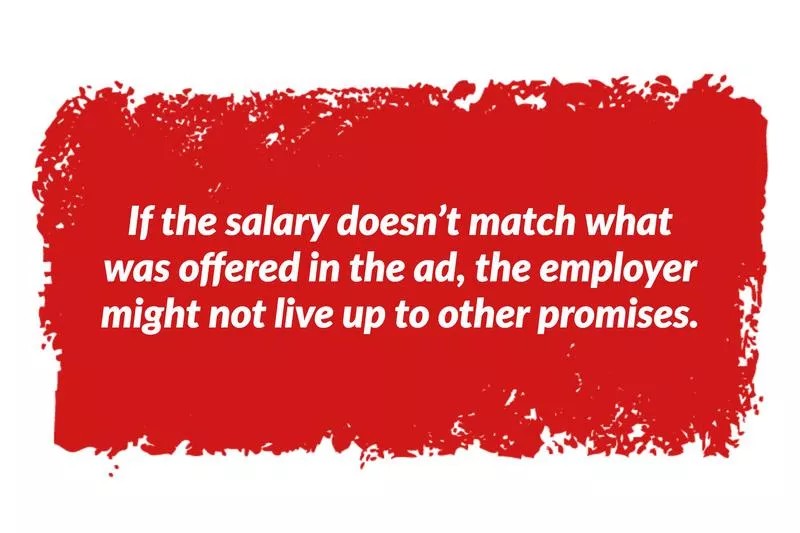
Did you give the company a salary range during an interview? Maybe you answered a job ad with a specific starting salary. However, when you received your offer, the salary was lower than expected.
While it can be worth it to take a lower salary, the reality is that you might need to be wary of a company that isn’t forthcoming with its pay policies. If you offered a range during the interview, but the hiring manager didn’t say anything about the budget for your position, or if the salary you’re offered doesn’t match what was offered in the ad, that’s a sign that the employer might not live up to other promises it makes to you.
14. They Offer You the Job on the Spot
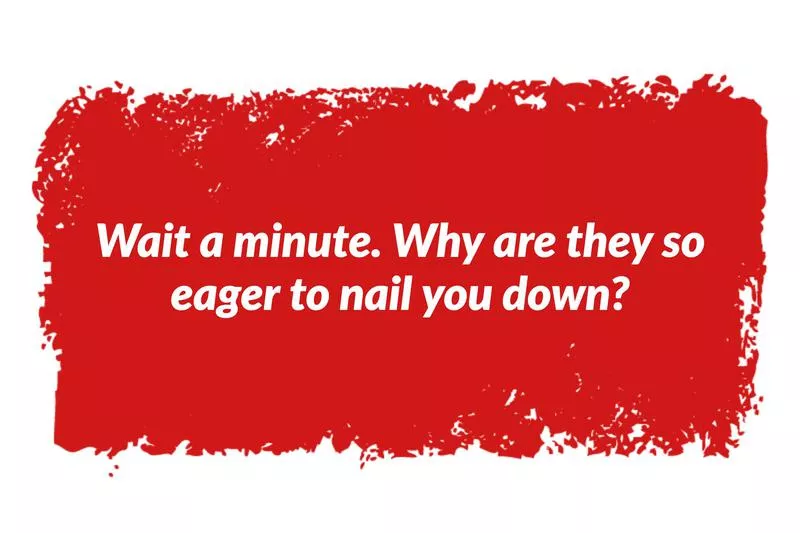
It seems perfect: They make a job offer to you during the interview. But wait a minute. Why are they so eager to nail you down?
Perhaps they’re trying to force you into accepting certain terms immediately, not allowing you time to think through the offer. They might be afraid that if they give you time to think about the offer, you’ll find some problems with it.
Another consideration might be that the job has high turnover and they need to fill the position quickly. If they have that much trouble retaining employees, there might be underlying problems that make the company a terrible place to work.
15. Company Reviews Are Poor
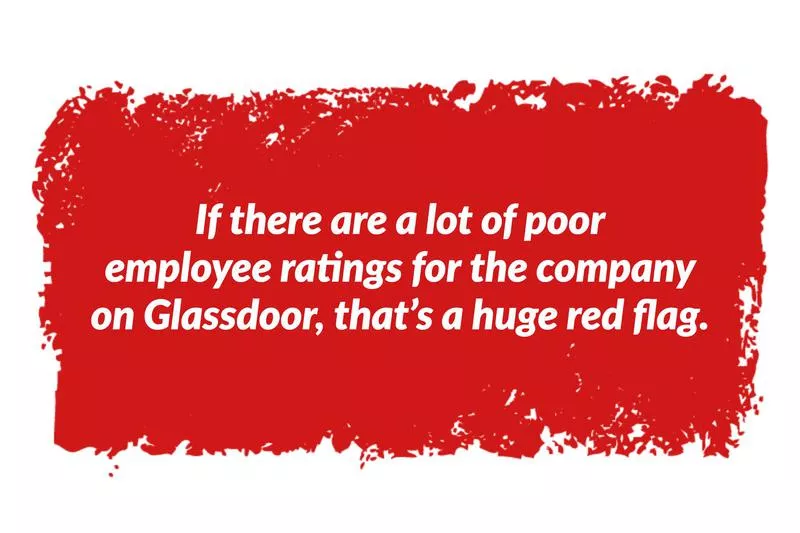
For the most part, if you receive adequate service at a restaurant, you probably won’t bother leaving a review. But if you end up with terrible service? There’s a good chance you’ll write an angry review during the ride home.
The same is true of an employer. Most former and current employees don’t bother writing reviews unless the company is outstanding or awful. If there are a lot of poor employee ratings for the company on Glassdoor or some other website, that’s a huge red flag.
16. Current Employees Don’t Have Much Good to Say
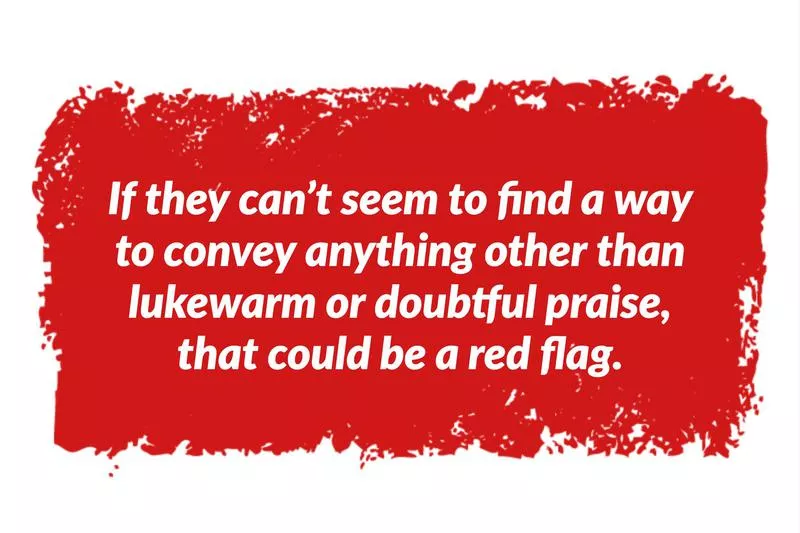
When possible, consider speaking with a few current employees. Casually ask them about the job, working at the company and your potential boss.
In most cases, current employees aren’t going to say anything negative. But that doesn’t mean you can’t pick up some useful clues about how it might be to work there. Pay attention to how they respond. Do they hesitate before saying that they like working there?
While they aren’t saying anything negative, they might be struggling to say something positive. If they can’t seem to find a way to convey anything other than lukewarm or doubtful praise, that could be a red flag that maybe this isn’t going to be the best environment for you.
17. You’re Treated Rudely During the Interview

Pay attention to how the people you interact with treat you when you come in for the interview. How does the receptionist treat you? Is the interviewer on time?
If you’re treated in a way that’s dismissive, that could be a red flag. Pay attention to how employees treat each other while you’re there as well. A culture that doesn’t promote mutual respect is likely to offer you a toxic work environment — and you don’t want any part of it.
18. The Terms of Employment Keep Changing
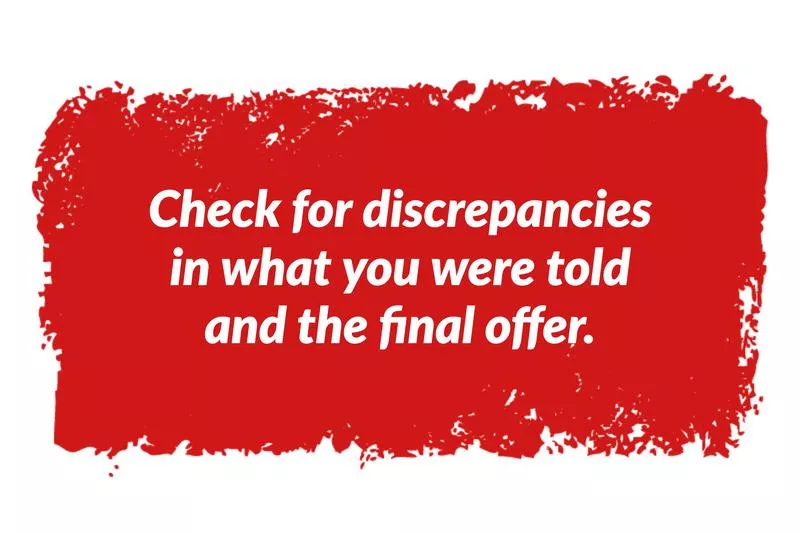
Do your notes show that the interviewer mentioned 14 days of paid vacation, but when you get your offer, there are only 10 days of paid vacation? Check for discrepancies in what you were told and the final offer. If the terms keep changing, you can’t be sure that the employer will honor its promises.
19. The Application Process Is Cumbersome
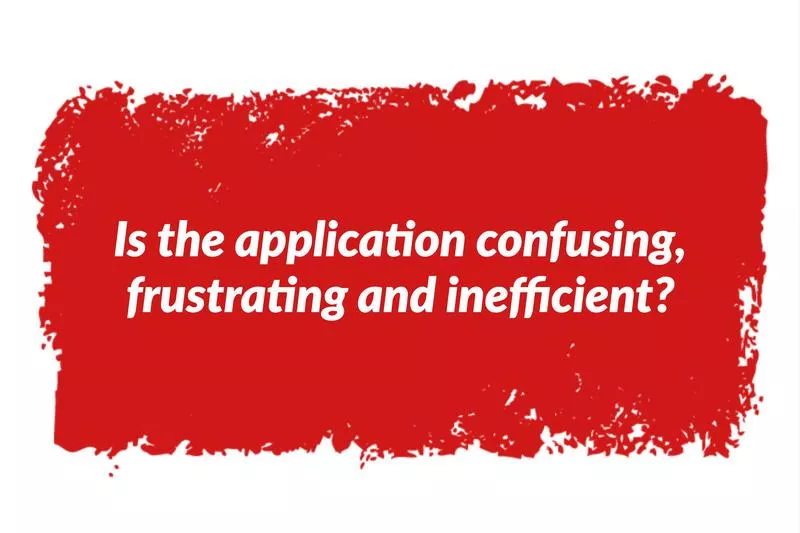
No one likes applying for jobs. In many cases, the process is tedious and can be time-consuming. However, there are some companies that make the application process even harder than it needs to be.
Is the application confusing, frustrating and inefficient? Does the process look as though it’s going to drag on, and you don’t have a solid understanding of each step that you need to follow?
In some cases, you might find that you go through round after round of interviews, with no real end in sight.
20. You’re Asked to Work for Free
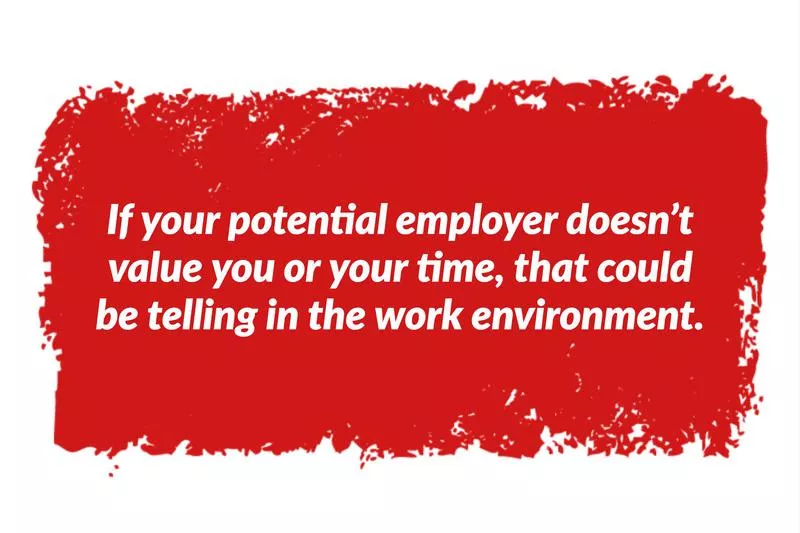
Perhaps you’re being asked to do sample work without pay. That addition to an application process is a definite indication that your potential employer doesn’t value you or your time — and that could be telling in the work environment.
21. Unorganized Onboarding Process
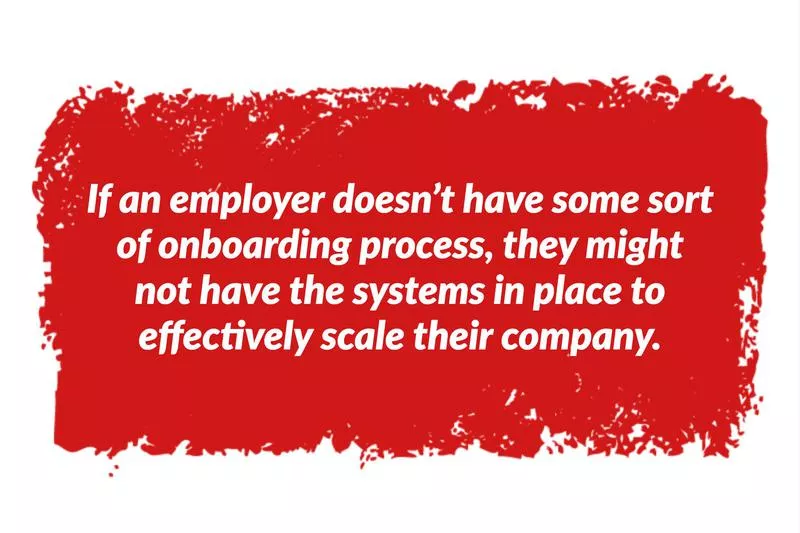
Ask questions about the onboarding process and find out how to proceed. Many successful companies have a set process that lays out how to fill out your paperwork, helps you go through your benefits and provides you with information that can help you prepare for your responsibilities.
If an employer doesn’t have some sort of onboarding process, and expects you to just learn as you go, that might be a sign that they don’t have the systems in place to effectively scale their company and sustain their business over time.
22. You Can’t See the Employee Handbook
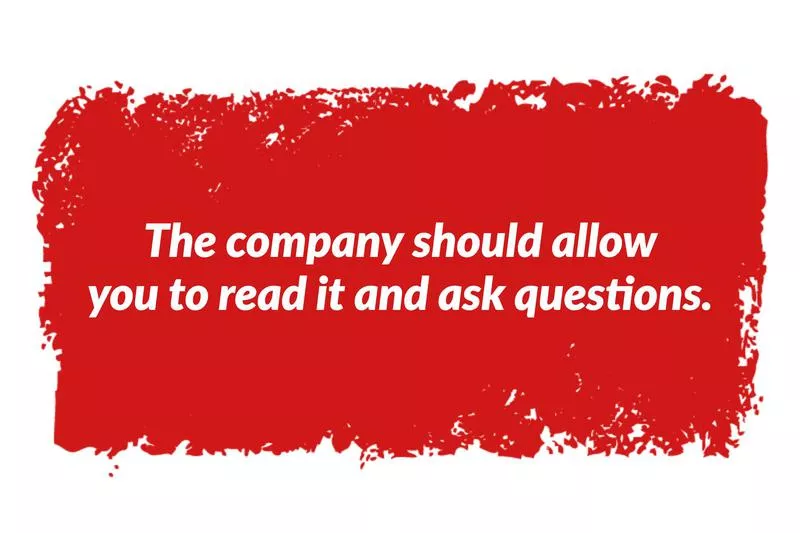
An employee handbook is the document that helps you understand your rights, as well as responsibilities, with the company. The company should allow you to read it and ask questions before you make your final acceptance of an offer.
If the company expects you to accept an offer before seeing the handbook, that could be a red flag indicating that they have something to hide. Or, even worse, there might not be a handbook for you to read. Without a handbook, it’s hard for you to know what recourse you might have in certain situations, so consider running the other direction.
When in Doubt, Trust Your Gut
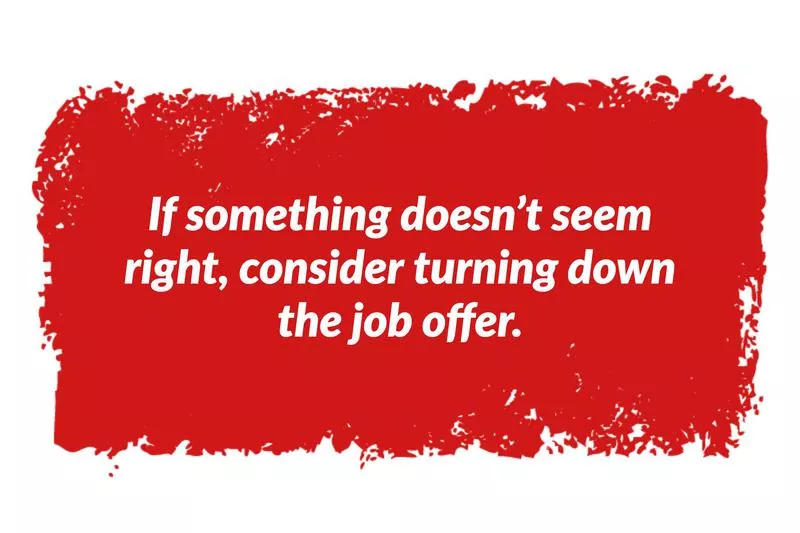
As you go through the job search process, pay attention to your instincts. Does something seem a little off to you? Are you a little uneasy? If you don’t feel as though you can truly trust the people you’ve met at the company so far, take a step back and re-evaluate if this a job you want in the first place.
No matter the job title, salary or situation, if something doesn’t seem right, consider turning down the job offer. You might be surprised at how often a gut check can save you from ending up in a terrible job.